
As part of our monthly clinician spotlight, NeurologyLive® highlighted sleep medicine and epilepsy expert Nancy Foldvary-Schaefer, DO, MS, director of the Sleep Disorders Center and staff in the Epilepsy Center at Cleveland Clinic.

As part of our monthly clinician spotlight, NeurologyLive® highlighted sleep medicine and epilepsy expert Nancy Foldvary-Schaefer, DO, MS, director of the Sleep Disorders Center and staff in the Epilepsy Center at Cleveland Clinic.
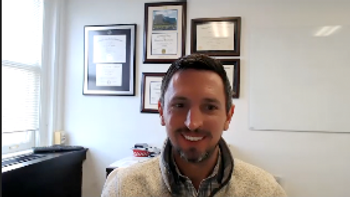
The vascular neurologist and director of the residency program at Cleveland Clinic provided perspective on the biggest learning experiences over the past decade for Cleveland Clinic’s mobile stroke unit. [WATCH TIME: 4 minutes]

The vascular neurologist and director of the residency program at Cleveland Clinic provided perspective on a recently conducted study showing the benefits of timely treatment through mobile stroke units for patients with acute intracerebral hemorrhage. [WATCH TIME: 6 minutes]
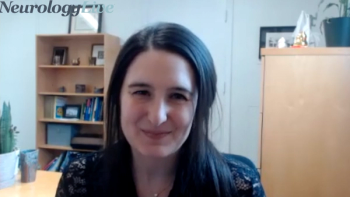
The staff neurologist at Cleveland Clinic’s Mellen Center for MS detailed some of the negative impacts issues with access to neurologists and MS care centers can have on patient diagnosis and longterm prognosis. [WATCH TIME: 4 minutes]
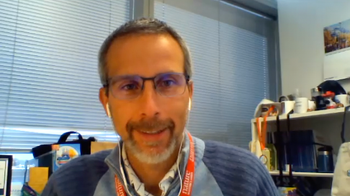
The associate professor of neurology at the Cleveland Clinic Learner Institute discussed some of the complexities with genetics in Parkinson disease and the ideas behind developing and administering targeted gene therapies. [WATCH TIME: 4 minutes]
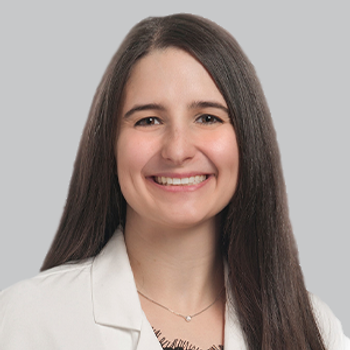
Marisa McGinley, DO, a staff neurologist at Cleveland Clinic’s Mellen Center for MS Treatment and Research, provided forward thoughts on the healthcare reach of neurologists and care access for patients with multiple sclerosis.

The associate professor of neurology at the Cleveland Clinic Lerner Institute provided insight on a recently published meta-analysis identifying independent genome-wide significant loci whose expression is associated with Parkinson disease risk. [WATCH TIME: 5 minutes]

The staff neurologist from the Mellen Center for MS Treatment and Research at the Cleveland Clinic provided perspective on recently published research showing geographic disparities to neurologists and multiple sclerosis centers. [WATCH TIME: 3 minutes]

The neurologist at Cleveland Clinic shared thoughts on a recently published study assessing the relationship between blood biomarkers and change in cognitive function and brain volumes in a cohort of professional fighters.
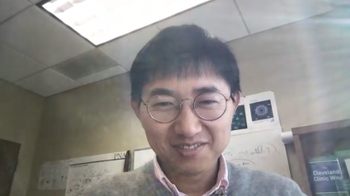
The assistant professor at Cleveland Clinic discussed findings from a recently published study that provided insights on the understanding of the molecular basis for female predominance in Alzheimer disease. [WATCH TIME: 3 minutes]
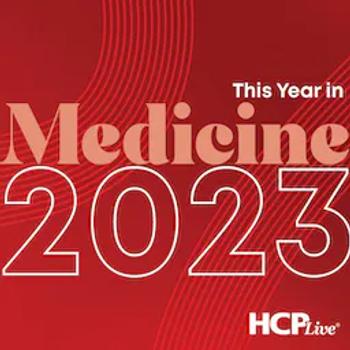
While specialists still debate the diagnostics of impaired cognition, the identification of patients at the earliest stages is beginning to be met through new biomarkers and available assays.
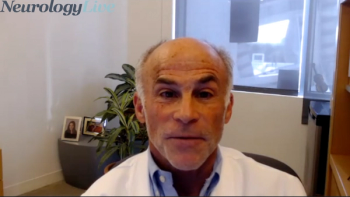
The neurologist at Cleveland Clinic provided perspective on the reasons to study individuals exposed to repetitive head impacts and the lessons learned about monitoring glial fibrillary acidic protein over time. [WATCH TIME: 4 minutes]

The director of the headache section at Cleveland Clinic’s Neurological Institute provided thoughts on how recent advances have propelled migraine care, treatment possibilities behind prevention, and emerging research targets.
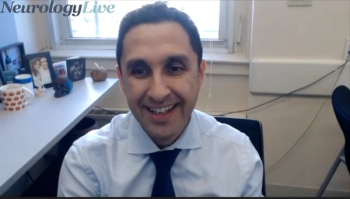
The director of the headache section at Cleveland Clinic detailed some of the emerging nonpharmacological preventive methods for migraine, as well as where research is headed following the explosion of CGRP-targeting therapies. [WATCH TIME: 6 minutes]

The director of the headache section at Cleveland Clinic’s Neurological Institute gave an administrative perspective on the changes to how patients with migraine are cared for, led by significant developments in recent years. [WATCH TIME: 4 minutes]

Presented at the 2023 AANEM meeting, new findings suggest that subcutaneous efgartigimod could be a valuable treatment option for patients with myasthenia gravis, with well-tolerated cycles and improved daily living activities.
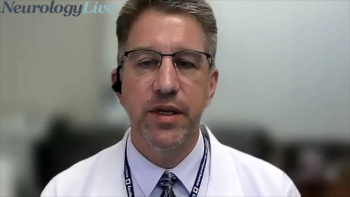
The vice-chair for research at Cleveland Clinic’s Neurological Institute provided commentary on the expanded research of GFAP in multiple sclerosis and whether certain biomarkers may predict treatment response. [WATCH TIME: 8]
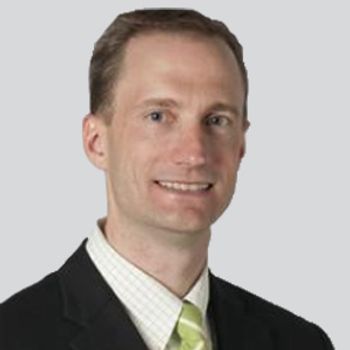
Jay Alberts, PhD, the Edward F. and Barbara A. Bell Endowed Chair at Cleveland Clinic, provided comment on a recently published randomized controlled trial assessing the therapeutic potential of an augmented reality program for postural instability and gait dysfunction in Parkinson disease.

Over a 6-month period, ofatumumab-treated patients met the primary end point of no change or reduction in the number of gadolinium-enhancing lesions on MRI.
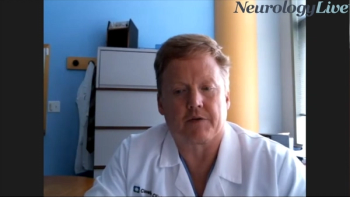
The associate staff member in the department of neurology at Cleveland Clinic discussed the major take-home points and post-hoc findings from a positive study of deep brain stimulation in poststroke patients. [WATCH TIME: 3 minutes]

As part of our monthly clinician spotlight, NeurologyLive® highlighted expert Gary Hisch, MD, pediatric neurologist at Cleveland Clinic, who oversees programs for neuromuscular disorders such as for patients with spinal muscular atrophy.

The associate staff member in the department of neurology at Cleveland Clinic provided perspective on a recently published phase 1 study assessing deep brain stimulation in individuals with chronic poststroke hemiparesis.

The associate staff member in the department of neurology at Cleveland Clinic provided background on a recently published phase 1 trial showing benefits of DBS for chonic poststroke motor rehabilitation. [WATCH TIME: 3 minutes]
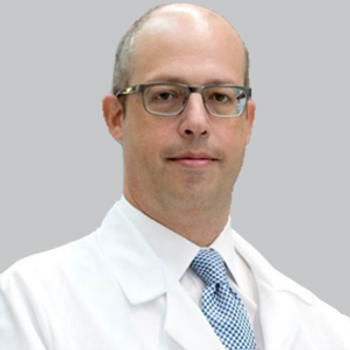
In addition to showing a safe and tolerable safety profile, patients who underwent the procedure showed a 7-point median improvement on the upper extremity Fugl-Meyer Assessment when used in combination with physical rehabilitation.
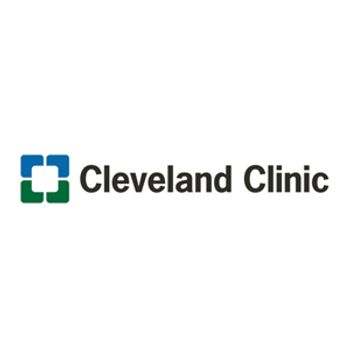
Since it was first discovered in the early 1900s, the therapeutic approaches to treating myasthenia gravis have changed significantly, with several proven treatment options.

Differential diagnosis consideration for MS requires a circumspect approach dependent on the clinical presentation and accompanied by vigilance for clinical and paraclinical red flags suggesting alternative diagnoses.
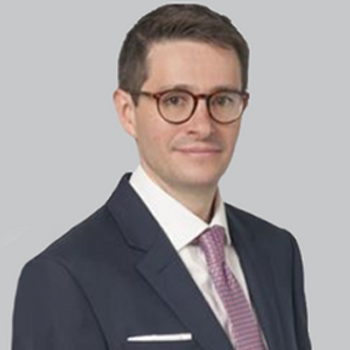
Despite similar proportion of females and ever-smokers, age of onset of multiple sclerosis was significantly earlier for Latinx patients compared with White non-Latinx individuals.

As part of our monthly clinician spotlight, NeurologyLive® highlighted stroke expert Andrew Russman, DO, head of the Stroke Program and medical director of the Comprehensive Stroke Center at Cleveland Clinic.
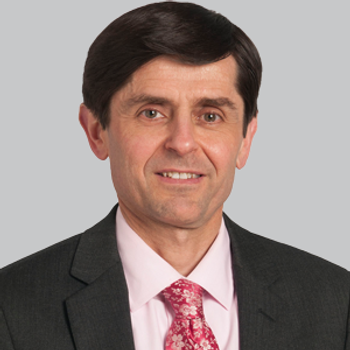
Neurological rehabilitation, or neurorehabilitation, can be described as the use of rehabilitation interventions to improve or maintain function and quality of life in the context of neurological conditions.
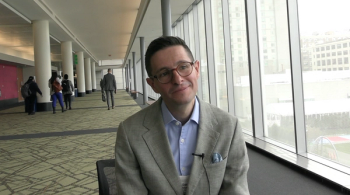
The associate professor of neurology at the Cleveland Clinic Lerner College of Medicine provided insight on the necessary research needed to understand why certain races experience more significant multiple sclerosis disease progress. [WATCH TIME: 4 minutes]